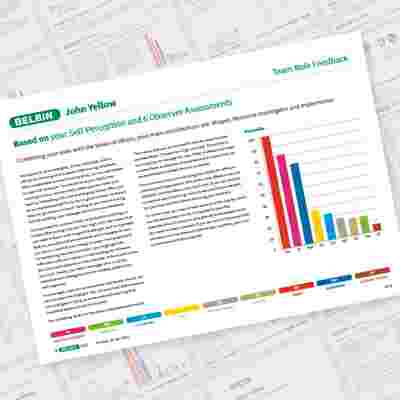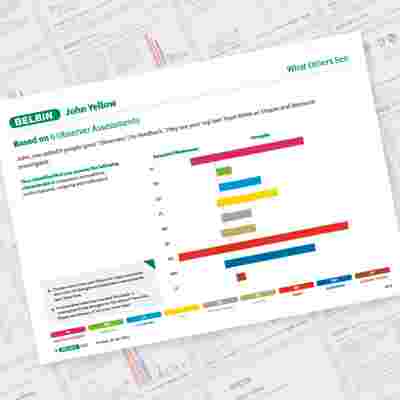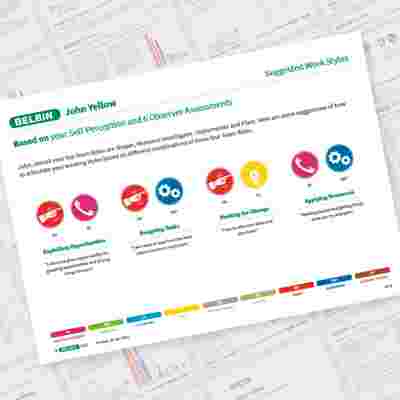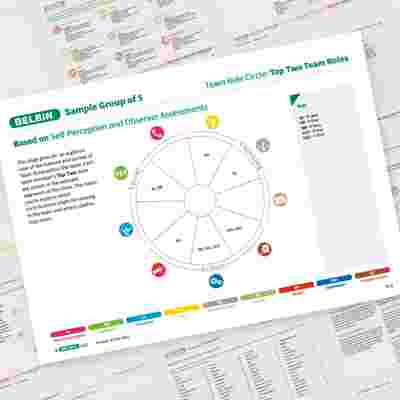Making up more than one third of the world’s population, Generation Z will soon outnumber Millennials.
So, who are Generation Z and what do they want from work?
Born between 1995 and 2012, Generation Z are now entering the workforce.
Deloitte observes that, despite growing up in a recession, Gen Z are not conservative and risk-averse and do not value job security above all else.
While salary is a key factor when choosing a job, other factors are at play too. To appeal to Gen Z, companies will have to demonstrate environmental and social responsibility, and to offer diversity, work-life balance, mental health support and opportunities for career growth.
Generation Z are entering the workforce in the midst of a post-pandemic power struggle between organisations and employees, according to the BBC. Whilst they are keen to work hard for the right organisation, unlike previous generations, they are also willing to leave and seek other opportunities if their needs aren't met.
According to Forbes:
- 96% of Gen Z respondents say it is important to feel valued, included and empowered at work.
- 80% want a job that allows them to grow skillsets, rather than one focused on a particular set of skills.
- 79% of respondents value having a manager who cares about personal, as well as professional, development.
To attract and retain the best and brightest of the generation will require a different mindset. Employers will need to understand the behaviours and tendencies of a generation that expects much more personalisation in how they are treated by their employer.
Rather than try to fill cookie-cutter roles, instead develop the profile of a great employee, establish internal apprenticeship programs, or hire smart, talented people and then match them with a role."
- Deloitte
5 tips for integrating Gen Z into the workforce
Whilst we might emphasise intergenerational differences, the objectives of Generation Z stand to benefit everyone in the workplace.
Here are 5 tips to help integrate Gen Z workers and enable employees of all ages to collaborate more effectively.

1. Focus on the individual
Generation Z want to be treated as individuals and indeed, no one wants to be reduced to a generational stereotype.
Belbin Team Roles can offer a gentle approach to identifying strengths and preferences, and discussing needs and areas for development at work, making it the perfect tool to bridge the gap between a newcomer's expectations and the requirements of the role at hand.
2. Cultivate Gen Z's natural self-awareness
According to Creative Pool, Generation Z is more self-aware when it comes to their working lives. They're more readily able to identify stressors and spot burnout, and are more receptive than previous generations to take steps to increase self-understanding.
Belbin is a tool which can boost self-confidence by empowering people to audit their own behaviours, mood and triggers, enabling them to understand how they work best.
In addition to the self-perception element, Team Role feedback from colleagues helps to identify hidden talents and to measure the impact of behaviours at the team level.


3. Use Belbin 'passports' to create interconnected networks of teams
Gone are the days of matching a job description with a college degree, writes Deloitte.
To harness the talents of Generation Z, organisations will need to move to a more flexible way of working, identifying talent and promoting flexible, interconnected networks of teams.
With a Team Role "passport" of behaviours that can easily be translated into different teams, individuals can move more easily from one part of the business to another, adding to their skillsets and cultivating different strengths as they transition from one role to the next.
4. Foster a collaborative culture
Whatever the talents of newcomers, it's vital to leverage the expertise of the older members of the workforce.
Mentoring and collaboration require trust – and that trust comes from understanding who we're working with.
Whilst older and younger colleagues might assume they have little in common on the face of it, if they discover that they are both driven, competitive Shapers, that similar approach can form the foundation of a working relationship. Even in cases where there are few similarities, speaking the language of Team Roles can help bridge generational divides. Here you can use the Belbin Working Relationship reports.


5. Value - and establish - diversity
Diversity of all kinds is important to Generation Z workers.
From a Belbin perspective, it's crucial to consider the behavioural diversity of your teams, which is shown to impact performance. How will a new recruit change your team dynamic and how can you coach both newcomer and team to capitalise on the hire?
Is the new talent a 'culture fit' or a 'culture add'? If you're looking for new voices, how will you ensure that these are heard and valued, and not shouted down for 'lack of experience'?
The Belbin Team report is an invaluable resource for analysing team culture, whether for recruitment, or for new or established teams. It provides key insights into your team's strengths (and what they may be missing) and helps to draw up a social contract and establish psychological safety.
Next steps
Start learning and using the language of Belbin Team Roles to help everyone, whatever their age and experience.
Come to one of our Introduction to Belbin sessions, become Belbin Accredited or contact us and have a chat - we would love to help you get the most from your teams! We're here on 01223 264975 or [email protected]
References
- "Welcome to Generation Z" – Deloitte
- https://www2.deloitte.com/us/en/pages/consumer-business/articles/understanding-generation-z-in-the-workplace.html
- https://www.forbes.com/sites/onemind/2022/07/22/the-future-of-work-depends-on-supporting-gen-z/?sh=1f0731e8447a
- https://www.bbc.com/worklife/article/20220613-gen-z-the-workers-who-want-it-all
Join over 25,000 people who receive our research and insights once a week. Unsubscribe any time.
Discover individual and team strengths using Belbin Team Role reports

Belbin Individual Reports
Before you can analyse your teams, you need to look at each individual's contribution. So, the first thing you will need to do is to generate a Belbin Individual report for each member of the team.
Find out more
Belbin Team Reports
Whether you're forming a new team, introducing new people to an existing team, or trying to resolve issues within a team, a Belbin Team report can help you to manage it.
Discover more
Why Use Belbin?
Belbin Team Roles are used to identify behavioural strengths and weaknesses in the workplace. Whether developing people, resolving conflict or fine-tuning high performance...
Read more